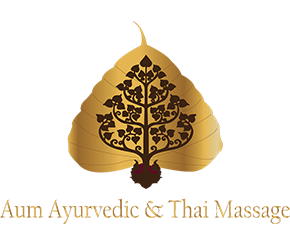What is the difference between RMT and licensed Holistic Practitioner? And what is better for me?
The RMT is an individual who is registered with the College of Massage Therapists of Ontario, in accordance with the Regulated Health Professions Act and the Massage Therapy Act. A Registered Massage Therapist is a primary healthcare provider in Ontario. Only massages that are done by the RMT will receive an insurance receipt issued.
A Holistic practitioner is a licensed individual who are certified and trained for a specific type(s) of massage modalities,and who is licensed under the City Of Toronto. Unfortunately, due to the current Provincial regulations, Holistic services cannot be claimed through insurance.
We offer both registered massage therapy and holistic health services. If you’re interested in an RMT session please book in advance.
Do you have parking?
Giving our central location, we regrettably cannot offer parking. Surface lots are available on College and Euclid
What is Ayurveda?
Simply put, Ayurveda means knowledge of life. Ayurveda is a philosophy over 5,000 years old, originates in India and is known as one of the oldest systems of medicine on Earth. Ayurveda focuses on how we live, what we eat, what medicine we use and what we apply on our skin. According to this ancient philosophy, human beings are an integral part of nature and we need to learn to live in harmony with our mind, body and surroundings.
The prime approach of Ayurveda as a treatment method is to eliminate the toxic elements entered in the body and purifying the body’s life system thereby restoring the balance in the body.
Ayurveda- A holistic approach
Ayurveda is not a “One remedy fits all” system. This is a statement which uproots or upsets common man’s deep-rooted beliefs. To understand this statement, we need to know more about the approach of Ayurveda. Ayurveda adopts a holistic approachduring diagnosis and therapy ie the physical condition, mental condition and the personality of a person are addressed in totality in designing the treatment process for an individual. As all these factors are specific for each individual, so is the treatment process. For the same reason, it is very important to have a detailed and direct interaction with the physician to decide on your treatment plan. This is the key deciding factor in the success of the treatment mainly because in Ayurveda diagnosis is through the five senses of the body. The experienced practitioner will roll out a specific program for every individual after the comprehensive evaluation. The treatment process is tailor made for each person considering the need, his/her body conditions, lifestyle elements etc.
It is always relative to the subject and his lifestyle. To understand this we need to understand the basic fundamentals governing Ayurveda.
Ayurveda- The fundamentals
According to the concepts of Ayurveda, all matter in our universe including the human body is composed of five elements in combination namely Space(ether), Air, Fire, Water, and Earth.
How does acupuncture work?
Acupuncture improves the body’s functions and promotes the natural self-healing process by stimulating acupuncture points located on the body’s meridians. The most common method used to stimulate acupuncture points is the insertion of fine (hair like), sterile single use needles into the skin. Pressure, heat, or electrical stimulation may further enhance the effects.
Other techniques/ modalities include: Tuina (manual massage), Moxibustion (heat therapy), Cupping, Guasha and the application of topical herbal medicines and liniments.
Traditional Chinese Medicine is based on an ancient philosophy that describes the universe, and the body, in terms of two opposing forces: Yin and Yang. When these forces are in balance, the body is healthy. Energy, called “Qi” flows along specific pathways, called meridians, throughout the body. This constant flow of energy keeps the yin and yang forces balanced. However, if the flow of energy gets blocked, like a traffic jam on the highway, the disruption and congestion can lead to pain, lack of function, or illness.
Acupuncture can release blocked Qi in the body and enhance it’s functioning, evoking the body’s natural healing response through various physiological systems.
Modern research has demonstrated acupuncture’s effects on the nervous system, endocrine and immune systems, cardiovascular system, and digestive system. By stimulating the body’s various systems, acupuncture can help to resolve pain, and improve sleep, restore digestive function, and a sense of well-being.





